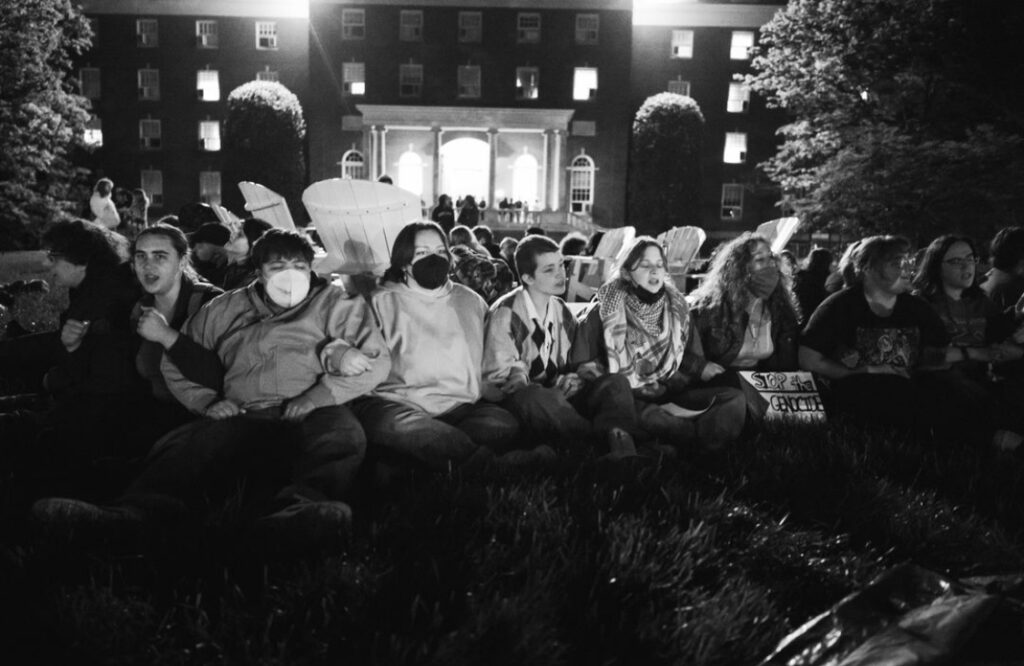Commonwealth’s Attorney withdraws charges against UMW students arrested at pro-Palestine encampment
2 min read
Students for Justice in Palestine band together to establish an encampment in solidarity with Gaza. | Photo courtesy of Amirah Ahmed.
by ALDEN FRIEND
Staff Writer
12 individuals, including nine students, were arrested on Jefferson Square on April 27 after the UMW Students for Justice in Palestine and other clubs affiliated with the Watermelon Coalition established an encampment in solidarity with Gaza. According to a campus-wide email from University President Troy Paino sent on the evening of the arrests, the individuals refused to comply with university policy and were considered trespassing.
On June 6, however, Commonwealth’s Attorney Elizabeth Humphries filed a motion to withdraw the criminal charges against the students.
“I felt it was incredibly unnecessary for VA State Troopers, Fredericksburg Police, and UMW Police to all show up to arrest 12 peaceful protestors, and they still didn’t have enough cop cars to transport us to the jail using proper procedure. They had to wait for more to arrive,” said one of the students arrested, senior English and women and gender studies double major Zoey Young.
UMW Chief of Police and Associate Vice President of Public Safety Michael Hall noted that the primary concern regarding the encampment was outside interference or agitation.
“So now we have a week before exams start, commencement getting ready, all the other events taking place on campus, all culminating at Jefferson Square, with a national and global hot topic,” he said.
Emphasis was placed on the presence of camping tents as justification for the police action and ultimate disbursement of the protest.
“Multiple tents started to appear, and then supplies were being kept in them. Outside entities could bring those tents and have other things in mind to do—having stuff concealed in those tents,” said Hall.
According to senior political science major and President of UMW SJP Amirah Ahmed, the university first alerted her of the restrictions on tents the morning of the arrests. Ahmed, who had been planning the encampment with the advice of university administrators weeks in advance, was baffled at the sudden change made in the name of security—especially considering the heightened police presence throughout the event.
“I said, what are the safety concerns? Like, you have a camera up watching everything so please do let us know,” she said. “We asked over and over again and no answer was given.”
UMW’s encampment was erected during a time when the national spotlight was pointed at colleges and universities across the country—and the globe—as students protested their institutions’ relation to the ongoing conflict in Gaza.
“We had to do something,” Ahmed said. “They were using extremely one-sided language. They refused to say the word Palestine. They used the usual dehumanizing terms—referring to Palestinians—as they always do. Called them barbaric, this that and the other, with no context.”


